Google executive accuses Apple of using peer pressure and bullying to sell iPhones

Back in October, Google Senior VP Hiroshi Lockheimer suggested that Apple end the blue bubble vs. green bubble battle by incorporating Google's Rich Communication Services (RCS) into the iOS Messages app. As you might know, features found on iOS such as end-to-end encryption, are broken when an Android user is part of a group chat. Lockheimer, whose official title at Mountain View is Senior Vice President of Platforms and Ecosystems, has more to say about RCS.
RCS is Google's attempt to build Android users a competitive SMS/MMS platform
First, for those uncertain what RCS is, it is Google's attempt to build an SMS/MMS platform to compete with Apple's Messages app. With RCS, Android users could send larger text messages, share larger media files, and have privacy thanks to end-to-end encryption. Google was even talking about using the platform as an e-commerce system allowing companies to get in touch with customers.
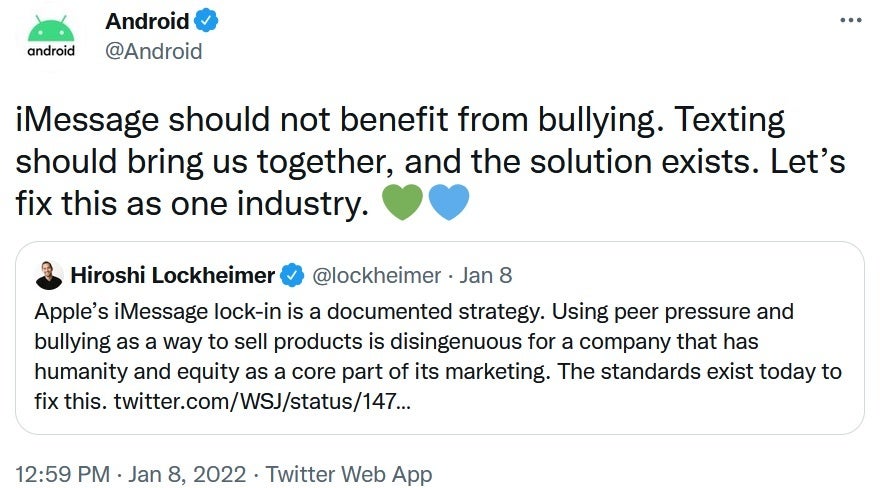
Google SVP Lockheimer accuses Apple of using bullying and peer pressure to sell iPhone handsets
RCS also gives Android users read receipts, and would allow them to send messages over Wi-Fi and mobile data. With iOS support for RCS, the Google executive notes that there would be less pressure among American youths to purchase an iPhone. With RCS, messaging an Android user would be a more modern and similar experience.
Before RCS, Google had an Android messaging app and most U.S. carriers also loaded Android phones with their own messaging app bloatware leading to a confusing mish-mash of features on different carrier apps.
Lockheimer, who is a strong supporter of RCS, tweeted comments related to a Wall Street Journal article about iMessage's domination among texting teens. This had led young Android users to feel left out when texting iOS users. Lockheimer wrote, "Apple’s iMessage lock-in is a documented strategy. Using peer pressure and bullying as a way to sell products is disingenuous for a company that has humanity and equity as a core part of its marketing. The standards exist today to fix this."
Yesterday, the Android Twitter account retweeted Lockheimer's comment about bullying. Some of the responses seem to come from iPhone users and were directed at Android owners complaining about iMessage. For example, a Twitter user by the name of Pandemic Mike (@reidermeister) stated, "The fact I drive a Tesla isn't fair to all the people who need to buy gas. Give me a break. You want to use iMessage buy an iPhone. If you want an Android device you will have to live with what Android offers or work around it (WhatsApp). Crying about iMessage is getting silly."
There is no technological reason why iMessages and RCS can't co-exist
Not all Twitter users took Apple's side of things. A subscriber named Remon (@TheGreatUsurper) stated, "Typical iPhone user missing the point. Android has an iMessage equivalent, it uses a protocol to replace SMS. All major carriers already support the standard. Android users text over wifi & data, (receive) read receipts, great group chats, (and) reactions. Apple intentionally hurts communication."
As Lockheimer points out, there is no technological reason why iOS and Android can't co-exist on a combined platform. He believes that Apple's decision not to support RCS is being done so that Apple continues to benefit from the vendor lock-in effect. Back in 2016, Apple's Phil Schiller said "moving iMessage to Android will hurt us more than help us." Apple's software head Craig Federighi stated that "iMessage on Android would simply serve to remove [an] obstacle to iPhone families giving their kids Android phones."
The Google SVP believes that with iOS support for RCS, there would be less pressure on teens to buy an iPhone. Along those same lines, there also would be less pressure on the parents of teens to buy them an iPhone instead of an Android phone. And since some Android handsets are much cheaper than iPhone models, not allowing Apple's Messages platform to integrate with RCS is theoretically costing consumers a large amount of money every year.
Follow us on Google News

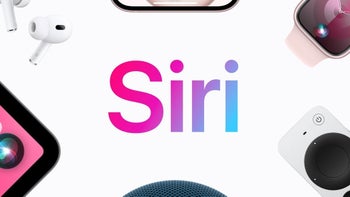
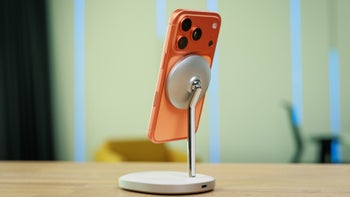

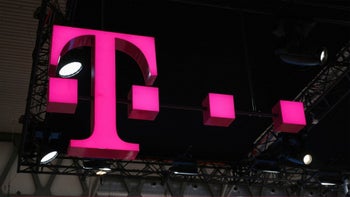
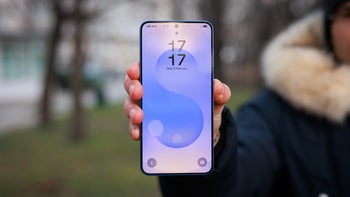
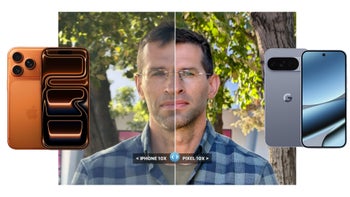
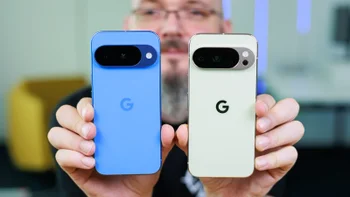
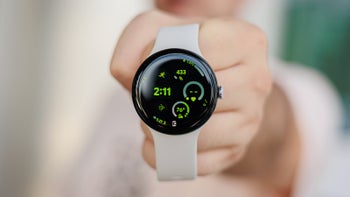
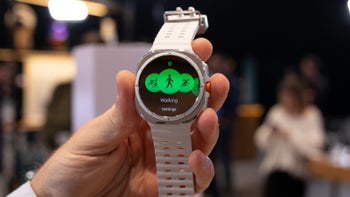


Things that are NOT allowed:
To help keep our community safe and free from spam, we apply temporary limits to newly created accounts: